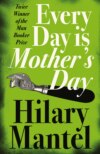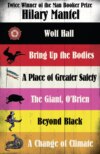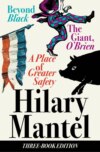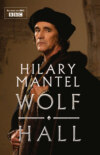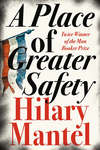Read the book: «The Giant, O’Brien»
The Giant, O’Brien
Hilary Mantel

For Lesley Glaister
…But then
All crib from skulls and bones who push the pen. Readers crave bodies. We’re the resurrection men.
George MacBeth, The Cleaver Garden’
Table of Contents
Cover Page
Title Page
Epigraph
1
2
3
4
5
6
7
8
9
10
11
12
Note
About the Author
Excerpt from Wolf Hall by Hilary Mantel
Praise
By the same author
Copyright
About the Publisher
1
‘Bring in the cows now. Time to shut up for the night.’
There came three cows, breathing in the near-dark: swishing with the tips of their tails, their bones showing through hide. They set down their hoofs among the men, jostling. Flames from the fire danced in their eyes. Through the open door, the moon sailed against the mountain.
‘Or O’Shea will have them away over the hill,’ Connor said. Connor was their host. ‘Three cows my grandfather had of his grandfather. Never a night goes by that he doesn’t look to get the debt paid.’
‘An old quarrel,’ Claffey said. They’re the best.’
Pybus spat. ‘O’Shea, he’d grudge you the earache. If you’d a boil he’d grudge it you. His soul is as narrow as a needle.’
‘Look now, Connor,’ the Giant said. His tone was interested. ‘What’d you do if you had four cows?’
‘I can only dream of it,’ Connor said.
‘But for house-room?’
Connor shrugged. ‘They’d have to come in just the same.’
‘What if you’d six cows?’
The men would be further off the fire,’ Claffey said.
‘What if you’d ten cows?’
The cows would come in and the men would squat outside,’ said Pybus.
Connor nodded. ‘That’s true.’
The Giant laughed. ‘A fine host you are. The men would squat outside!’
‘We’d be safe enough out there,’ Claffey said. ‘O’Shea may want interest on the debt, but he’d never steal away a tribe of men.’
‘Such men as we,’ said Pybus.
Said Jankin, ‘What’s interest?’
‘I could never get ten cows,’ Connor said. ‘You are right, Charles O’Brien. The walls would not hold them.’
Well, you see,’ the Giant said. There’s the limit to your ambition. And all because of some maul-and-bawl in your grandfather’s time.’
The door closed, there was only the rush light; the light out, there was only the dying fire, and the wet breathing of the beasts, and the mad glow of the red head of Pybus.
‘Draw near the embers,’ the Giant said. In the smoky half-light, his voice was a blur, like a moth’s wing. They moved forward on their stools, and Pybus, who was a boy, shifted his buttocks on the floor of bare rock. ‘What story will it be?’
‘You decide, Mester,’ Jankin said. ‘We can’t choose a tale.’
Claffey looked sideways at him, when he called the Giant ‘Mester’. The Giant noted the look. Claffey had his bad parts: but men are not quite like potatoes, where the rot spreads straight through, and when Claffey turned back to him his face was transparent, eager for the tale he wished he could disdain.
The Giant hesitated, looked deep into the smoke of the fire. Outside, mist gathered on the mountain. Shapes formed, in the corner of the room, that were not the shapes of cattle, and were unseen by Connor, Jankin and Claffey; only Pybus, who because of his youth had fewer skins, shifted his feet like a restless horse, and lifted his nose at the whiff of an alien smell. ‘What’s there?’ he said. But it was nothing, nothing: only a shunt of Claffey’s elbow as he jostled for space, only Connor breathing, only the mild champing of the white cow’s jaw.
The Giant waited until the frown melted from the face of Pybus, till he crossed his arms easily upon his knees and pillowed his head upon them. Then he allowed his voice free play. It was light, resonant, not without the accent of education; he spoke to this effect.
‘Has it ever been your misfortune to be travelling alone, in one of the great forests of this world; to find yourself, as night comes down, many hours’ journey from a Christian hearth? Have you found yourself, as the wind begins to rise, with no man or beast for company but your weary pack-animal, and no comfort in this mortal world but the crucifix beneath your shirt?’
‘Which is it?’ Jankin’s voice shook.
‘’Tis the Wild Hunt,’ Connor said. ‘He meets the dead on their nightly walk, led by a ghostly king on a ghostly horse.’
‘I will be feart,’ Jankin said.
‘No doubt,’ said Claffey.
‘I have heard it,’ Connor said. ‘But at that, it’s one of his best.’
They finished debating the tale, and then the Giant resumed, bringing them presently through the deep, rustling, lion-haunted forest to where they had not expected to be: to the Edible House. From his audience there was a sigh of bliss. They knew edible; they knew house. It had seldom been their fortune to meet the two together.
He mixed his tales like this: bliss and blood. The roof of gingerbread, then the slinking arrival of a wolf with a sweet tooth. The white-skinned, well-fleshed woman who turns to bone beneath a man’s caress; the lake where gold pieces bob, that drowns all who fish for them. Merit gains no reward, or duty done; the lucky prosper, and any of us could be that. Jesu, he thought. There were days, now, when he felt weakness run like water through legs that were as high as another man’s body. Sometimes his wrists trembled at the weight of his own hands. A man could be at the end of his invention. He could be told out; and those who have not eaten that day have sharp tempers and form a testy audience. Only last week he had asked, ‘Did you ever hear the story of St Kevin and O’Toole’s goose?’ and a dozen voices had shouted, ‘OH, NOT AGAIN!’
A cow, intent on the fire, had almost stepped on his foot. To teach it a lesson, he stepped on its own. ‘Mind my beast!’ Connor cried. The Giant glanced to heaven, but his view was blocked by the roof. Forty years ago Connor’s grandad had thatched it, and now it was pickled and black from the fire; when it rained, and the rain ran through it, it trickled a dilute sooty brown on the men’s heads. Connor had no wife, nor was likely to get one. Nor Pybus, nor Claffey; Jankin, he slightly hoped, would be unable to breed.
Changes were coming; he could see them in the fire and feel them in the whistling draught from every wall. His appetite was great, as befitted him; he could eat a granary, he could drink a barrel. But now that all Ireland is coming down to ruin together, how will giants thrive? He had made a living by going about and being a pleasant visitor, who fetched not just the gift of his giant presence but also stories and songs. He had lived by obliging a farmer who wished a rooted tree lurched up, or a town man who wanted his house pushed down so he could build a better. Strength had been a little of it, height had been more, and many hearths had welcomed him as a prodigy, a conversationalist, an illustration from nature’s book. Nature’s book is little read now, and he thought this: I had better make a living in the obvious way. I will make a living from being tall.
He turned to Claffey, who alone of them had a bit of sense. He said, ‘My mind’s made up. It’ll have to be Joe Vance.’
A day or two after, Joe Vance came up the mountain. He had a greasy hat to his head, and a flask of strong liquor bobbing at his thigh on a cord. He was a smart man, convenient and full of quips; he had been agent and impresario to a number of those who had left the district over the last ten years. He knew the art of arranging sea voyages, and had sometimes been on voyages himself. He had been in gaol, but had got out of it. He had married many wives, and some of them were dead; died of this or that, as women do. He had black whiskers, broad shoulders that showed the bones plainly, a bluff, reasonable, manly aspect, and honest blue eyes.
Connor’s cabin came into view. It had not the refinement of a chimney—since six months there was not a chimney in miles—but there was a hole made in it; indifferently, the smoke eased itself through both the hole and the thatch, so it appeared the whole house was steaming gently into the rain and mist of the morning.
Joe Vance found the cabin full of smoke, and all of them huddled around a miserable fire. His honest eyes swept over their circumstances. The Giant looked up. He was ridiculous on his stool, his knees coming up to meet his ears. ‘You should have a throne,’ Vance said abruptly.
‘Of that he is in no doubt,’ Claffey said.
‘Will you be coming on the venture?’ Vance asked him.
‘He must,’ Pybus said. ‘He speaks their lingo. Jabbers in it, anyway. We have heard him.’
‘Do you not speak English, O’Brien? I thought you were an educated giant.’
‘I have learned it and forgotten it,’ the Giant said. ‘I have sealed it up in a lead box, and I have sunk it in the depth of the sea.’
‘Fish it out, there’s a good lad,’ Vance said. ‘If any see it, grapple it to shore. You must understand, I’m not aiming to present you as a savage. Nothing at all of that kind of show.’
‘Are we going as far as Derry?’ Jankin asked. ‘I’ve heard of it, y’know.’
‘Ah, Jankin, my good simple soul,’ said the Giant. ‘Vance here, he knows how things are to be done.’
‘You are aware,’ Vance said, ‘that I was agent to the brothers Knife, very prodigious giants who you will remember well.’
‘I remember them as rather low and paltry,’ O’Brien said. The larger of the Knives would scarcely come to my shoulder. As for his little brother—Pocket, I used to call him—when I went to the tavern at ten years of age, I was accustomed to clutch my pot in my fist and ease my elbow by resting it on his pate.’
‘The Knives were nothing,’ Jankin said. ‘Dwarves, they were, practically.’
Joe Vance moved his honest eyes sideways. He recalled the Knives—especially Pocket—as boys who could knock down a wall just by looking at it. Pocket was, too, uncommonly keen on his percentages, and once, when he thought he was short-changed, he had lifted his own proper person high in the air and hung him by his belt on a hook where a side of pig was stuck just yesterday. It was with one hand he hoisted him, and that his left; Vance wouldn’t easily forget it. Glancing up, he appraised O’Brien, assessing his potential for violent excess. Where he could get away with it, he was this sort of agent; he took twenty shillings in the guinea.
‘Now, as to my terms,’ the Giant said. ‘Myself and my followers—that’s these here about—we must have all comfort and commodity on the journey.’
‘I am accustomed to booking passage,’ Joe Vance said, bowing.
‘It must be a vessel to surprise the Britons. A golden prow and sails of silk.’
‘You yourself shall be the surprise,’ Vance cooed.
‘I must have six singing women to go before me.’
Vance lost control; it didn’t take much. That’s all shite! You, Charlie O’Brien, you haven’t tasted meat since last Easter. You live on your hands and knees!’
‘True,’ said the Giant, glancing at the roof. ‘All six must be queens,’ he said, smiling; he thought Vance’s manners mild enough, and what’s to be lost by upping your demands?
‘Where would I get six queens?’ Vance bellowed.
That’s your problem,’ the Giant said urbanely. He stretched his legs. The brush of his big toe nearly pitched Jankin into the flame, but Jankin blew on his burnt palms, and licked them, and apologised.
Claffey raised his head. He engaged Vance’s eye. He nodded towards O’Brien, and said, ‘He’s dangerous, in a room.’ He left it at that. On the whole, Claffey did know where to leave things.
The Giant said, ‘Vance, shall I have coin in my pocket? Shall I have gold in my store?’
Vance held out his hands, palms up. ‘What Joe Vance can lawfully obtain, you shall share in. The English public, of my certain knowledge, is starved of the sight of a giant. It’s a kind of charity, now I think of it, to take a giant over to them.’
He looked Jankin in the face. ‘Englishmen are a type of ape,’ he explained.
He was smiling with half his face. The Giant saw this.
‘Not so,’ he said. ‘Low in stature, barbarous in manner, incomprehensible in speech: unlettered, incontinent and a joke when they have drink taken: but not hairy. At least, not all over.’
‘I have never seen an ape,’ Jankin said. ‘Nor dreamed of one. Have I seen an Englishman?’
They are the ones that ride horses,’ Claffey said.
‘So,’ Jankin said. ‘I have seen them.’
‘What about Connor?’ Vance asked. ‘Are you coming yourself?’
‘Connor is a man of wealth and substance,’ Claffey said. ‘He has his cows to guard.’
Connor’s brow creased. He ran his hands back through his hair. ‘Once, O’Shea came over, sneaking in the night with a basin, and bled my cows to make his Sunday broth. As if he were a Kerryman.’
‘Yes,’ the Giant said. ‘A Kerry cow knows when it’s Saturday night.’ He lifted his head. Well, this hearth has been our anchor. But now we must be under sail.’
When they came down the mountain, their feet sunk in the mud and squally rain blew into their faces. It was the time of year when rats stay in their holes, dogs in their kennels and lords in their feather beds. Civilly, the Giant carried all their packs, leaving them with their hands free to help them balance if they skidded. A league or so on they came to a settlement, or what had been so recently; what was now some tumbled stone walls, the battered masonry raw, unclothed by creeping green. A few months after the clearance, the cabin walls were already disintegrating into the mud around; their roofs had been fired, and they were open to the sky.
Something small, dog-height, loped away at their approach: hands swinging, back bent.
‘A hound or a babby?’ Pybus asked, surprised.
The Giant wiped the streaming rain from his face. His quicker eyes discerned the creature as not of this world. It was one of those hybrids that are sometimes seen to scuttle, keen and scrape in ruins and on battlefields: their human part weeping, their animal nature truffling for dead flesh.
‘I’d thought we could take shelter,’ Claffey said. His fur hat lay on his head like a dead badger, and his best coat had its braid ruined. ‘Not a roof left in the place.’
‘I told you not to wear your finery,’ the Giant said.
‘A plague on the whole class of agents,’ Claffey said. ‘On agents, bailiffs and squireens.’
‘You shouldn’t say a plague,’ the Giant said. ‘You should say what plague. Say, May their tongues blister, and the eyes in their head spin in orbits of pus.’
‘You’re pernickety in cursing,’ Claffey said. ‘I’d curse ’em with a cudgel and split their skulls.’
‘So would I,’ said Pybus.
‘Cursing,’ the Giant said, ‘is an ancient and respectable art. An apt curse is worth a regiment of cudgels.’ He eased the packs on his shoulders. ‘Ah well, let’s step out for the town.’
“The town!’ Jankin said. He tried to skip.
When they came to the town, only a youth or two walked out to greet them; there was no clamour of children come to see the Sight. They spotted the youths from a great way off; the road was bare and smooth as a queen’s thigh. The Giant gave a great hulloo, greeting them from afar; it whooped over the treeless domain, looping the boys like a rope with a noose.
The Giant slowed, accommodating his stride, as he had to remember to do. The youths met them in a wilderness of splintered wood, the raw wet innards of tree stumps offered up to a blowing, twilit sky.
A whole forest chopped down for profit, and houseless birds shrieking at day’s end.
‘We have only been walking one day,’ Pybus said, ‘and we have come to this.’
The Giant looked at him sideways. Already, the journey was bringing out finer feelings in Pybus, which he had not suspected him to possess.
The youths bowed when they drew up to them. ‘Welcome, Mesters. These days, even the beggars give us the go-by.’
‘Do the blind men visit you?’ the Giant asked.
‘Yes, they have the kindness. They don’t turn back, though they say they can smell disaster. Yet if they have a fiddle, we have no strength to dance.’
The youths brought them on to the town. They are cutting, as you see,’ one said. The stench of the wood’s fresh blood lay on the damp air, floating about the Giant at chest height.
Jankin gaped. ‘Where will they go, those persons who live in the woods?’
Hastily, he corrected himself: ‘Those gentlepersons, I ought to say.’
‘We can’t care,’ one of the youths said harshly. ‘We have lived beside them and even put out milk for them in better times, but we have no milk now and only ourselves to help us. I’ve heard they’d bring grain and a piece of bacon or a fowl to those they favour, but that’s not our experience. They must shift for themselves, as we must.’
‘It’s stories,’ Claffey said. ‘Gentlefolk in the woods, green gentlemen and small—it’s only stories anyway.’
They looked up at the hillside. It was a face with a smashed mouth, with stumps of teeth. There were no shadows and no shifting lights. It was just what it was, and no more: a devastation. The Giant said, to soften the facts for Jankin, ‘There are still some forests in Ireland. And to travel doesn’t irk the gentry, as it irks us. They are as swift as thought.’ Then he bit his lip, and grinned, thinking that in Jankin’s case that was not very swift at all.
The town was silent, and to the Giant this silence was familiar. It was the hush of famine, the calm that comes when bad temper is spent, the gnawing pain has ebbed and there is nothing ahead but weakness, swelling, low fever and the strange growth of hair. Only Jankin sang out: ‘We are coming to the town, the town.’
‘Kill that noise,’ Claffey said. They looked about them. Like a puppy, Jankin crept closer to the Giant’s side.
They have broken you, I see,’ the Giant said to the youths.
The town was nothing now; two streets of huts, dung heaps steaming outside their doors, their walls cracked and subsiding, their roofs sagging. It was a town with no pride left, no muscular strength to mend matters, no spark in the heart to make you want to mend. The rain had stopped, and the clouds were parting. The rutted road held standing pools, a white hazy sun glowing in their depths. The children stared as they passed, scratching the bursting pods of their bellies. They gaped at the Giant, but they did not shout. They were weary of wonders. The wonder of a dish of potatoes and buttermilk, that would have made them shout; but for potatoes, it was too early in the year. If O’Brien had been the devil come to fetch them, they would have followed him, bug-eyed, hoping they might dine in hell.
‘Where’s Mulroney’s?’ Claffey said. Where’s Mulroney’s tavern?’
‘Where’s anything?’ one of the youths said. ‘Mulroney died while you were away up the mountain. He took a fever. His house fell down.’ He waved an arm. ‘There it is.’
What – that? That ruin slid into a ditch? Mulroney’s, where they used to hold the Court of Poetry, after the big house was destroyed? Mulroney’s, where there was no fiddling or singing or vulgar harping, but a correct recitation of the old stories in the old metres? It was a Court of crumbling men, their faces cobwebbed, their eyes milky, their hands trembling as they gripped their cups. Bad winters killed them one by one, fluid filling the lungs that had breathed the deeds of kings.
‘But that can’t be Mulroney’s!’ Pybus burst out. ‘What will we do? The Giant must have strong drink! It’s a need in him.’
‘It’s sauce to a good story,’ Jankin said, having often heard this expression.
‘Joe Vance will be here presently,’ the Giant said. ‘We’ll do, till then.’
A woman appeared at the door of one of the cabins. She began to step towards them, skirting the puddles, though her legs and feet were bare and muddy already. She approached. The Giant saw her large grey eyes, mild and calm as a lake in August: the fine carving of her lips, the arch of her instep, the freedom of her bones at the joint. Her arms were white peeled twigs, their strong muscles wasted; a young child showed, riding high inside her belly like a bunched fist.
‘Good day, my queen.’
She didn’t greet him. ‘Can you heal? I have heard of giants that can heal.’
‘Who wants it?’
‘My son.’
‘What age?’
‘Three.’ Her hair was as fine as feathers, and the colour of ash. ‘And as for three years I have never eaten my fill, neither has he.’ Blue veins, thin as a pen’s tracing, rippled across her eyelids and marbled her inner arm.
These, the Giant said to himself, are the sons and daughters of gods and kings. They are the inheritors of the silver tree amongst whose branches rest all the melodies of the world. And now without a pot to piss in.
Her hand reached up for his arm. She drew him down the street. ‘This is my cabin.’
Beside it, Connor’s was a palace. The roof was in holes and mucky water ran freely through it. The child was in the least wet part, wrapped in a tatter or two. In his fever, he kept tearing the rags from him; with practised fingers, his mother wrapped them back. His forehead bulged, over sunken, fluttering eyelids. ‘He is dreaming,’ the Giant said.
Squatting on her haunches, she gazed into his face. ‘What is he dreaming?’
‘He is dreaming the dreams that are fit for a youth who will become a hero. Others babies dream of milk; his dreams are of fire. He is dreaming of a castle wall and an armoured host of men, himself at the age of eight as strong as any man grown, a gem set on his brow, and a sword of justice in his hand.’
She dropped her head, smiling. The corners of her mouth were cracked and bleeding, and her gums were white. ‘You are an old-fashioned sort, are you not? An antique man. If there were a gem on his brow I would have sold it. If there were a sword of justice, I would have sold that too. What hope for the future, you’ll say, if the sword of justice itself is sold? But it is well known, almost a proverb, that a hungry woman will exchange justice for an ounce of bread. You see, we have no heroes in this town, not any more. No heroes and no virtues.’
‘Come away with us,’ he said. ‘We are going to England. I am going to the great city of London—it seems that there a man can show himself for being tall, and they’ll pay him money.’
‘Come away?’ she repeated. ‘But you go tomorrow, do you not? Shall I leave my son unburied? I know he will die tonight.’
‘You have no husband?’
‘Gone away.’
‘No mother or father?’
‘Dead.’
‘No brother or sister?’
‘Not one alive.’
‘Must you measure the ground where they dropped? Will you pace it every day?’ He indicated the child. ‘Will you scour these rags to swaddle the child you are carrying? Come away, lady. There’s nothing left for you here. And we need a woman of Ireland, to sit beside me on my throne.’
‘Who’s getting you a throne?’
‘Joe Vance. He’s shown giants before. He’s got experience in it.’
‘Ah, you poor man,’ she said. She closed her eyes. ‘I never thought I should say that, to a giant.’
‘Don’t fear. There is a sea voyage, but Vance has made the passage before.’
The child’s head jerked, once; his eyes flashed open. He reared up his skull. A thin green liquid ran from the side of his mouth. His mother put her hand under his head, raising it. He coughed feebly, snorted as he swallowed the vomit, then began to expel the green in little spurts like a kitten’s sneeze.
‘What did he eat?’ O’Brien asked.
‘God alone knows. Here we live on green plants, just as in my grandfather’s rime men ate grass and dock. The children have found something that poisons them, and it is always the ones who are too young to explain it—you could ask them to lead you to where they have plucked it, but by the time you know they are poisoned they are too weak to lead you anywhere. Or maybe—I have thought—it’s something we give them—some innocent herb—that we can eat, but which murders them.’
‘That’s a hard thought.’
‘It is very hard,’ she said.
The Giant and his train enjoyed nettle soup, and before the craving became acute Vance appeared with his flasks of the good stuff. Squatting in the cabin of the woman, the Giant told these stories: the Earl of Desmond’s wedding night, and how St Declan swallowed a pirate. All the town had come in, some bringing a light and others a turf for the fire, listening to the tales and praying in between them. When the death agony arrived, O’Brien took the child on to his knee, so that the rattle in his throat was interlaced and sometimes overlaid by his light, mellifluous tones, that tenor which surprised the hearers, coming as it did from a man so grossly huge. He tried to fit the cadence of his tale to the child’s suffering, but because he was a fallible person there were moments when it was necessary for him to pause for thought; at these times, the mud walls enclosed the horror of labouring silence, the scraping suspension of breath before the rasping cry which brought the babby back to life for another minute, and another. His body sleek with hair, his bones thick as wire, he looked like a mouse under O’Brien’s hand.
When the crux came, he cried out once, with that distant, stifled cry that hero babies make when they are still in their mothers’ wombs. It was cry of vision and longing, of the future seen plain. When O’Brien heard it he scooped the little body in one hand and placed it in his mother’s lap, where within a second the child became a corpse. Within another second a green sludge dripped from the nostrils, leaked out between the thighs, dripped like the sea’s leavings even from the cock curled like a shell in its rippling beach of skin.
At once, Pybus began to sing, his high-strung boy’s voice rising to the sky. The clouds had no call for it; they sent his song back, stifled, to die between the wasted shoulders and the mud walls. ‘At least you’re not short of water,’ Claffey said, raising his eyes to tomorrow’s certainty of rain.
At dawn, the youths met them and escorted them to the end of the town. ‘Can’t you voyage with us?’ the Giant asked. ‘You’re brave boys, and there’s nothing here for you.’
Joe Vance looked daggers.
‘Thank you, sir,’ the foremost youth said. ‘We are decided to remain here. A better age may come. Are you a poet, by the way?’
‘In a poor sort,’ the Giant said. ‘I can make a song. But who can’t? As for the old systems, the strict rules, I never learned them, and if I’m honest with you it’s a matter of training rather than aptitude. I believe there is no one of my generation who is confident in them. That was the use of Mulroney’s, you see, we met the old men there, and we would learn a little.’
‘Let’s get on the way,’ Joe Vance said. He shifted his feet.
‘There was a time when friars walked the roads, disguised as rough working men: friars from Salamanca, from Rome, from Louvain. They have left me with the rudiments of their various tongues, besides a sturdy and serviceable Latin, and a knowledge of the Scriptures in Greek. Travelling gentlemen, all: never more than a night or two under the one roof, but always with time to spare for the education of a giant boy.’
Joe Vance reached up, and tugged at his clothing.
‘A fly besets me,’ the Giant said. He pretended to look about. ‘Or some hornet?’
Joe removed his hand, before he could be swatted. ‘A honey bee,’ he said.
That night in his sleep, the Giant sat among the dead, and heard the voices of the old men at Mulroney’s: dry whispers, like autumn leaves rubbed in a bag.
The free excerpt has ended.













